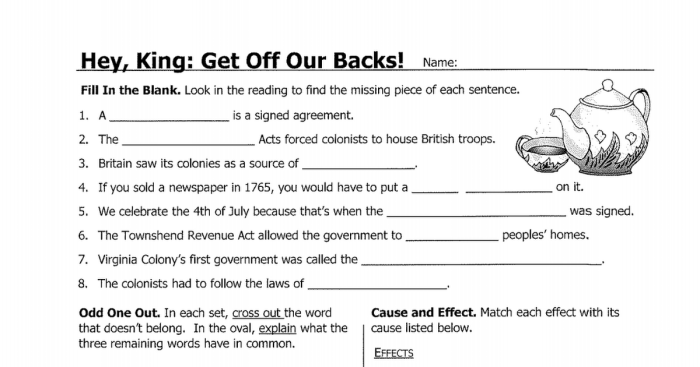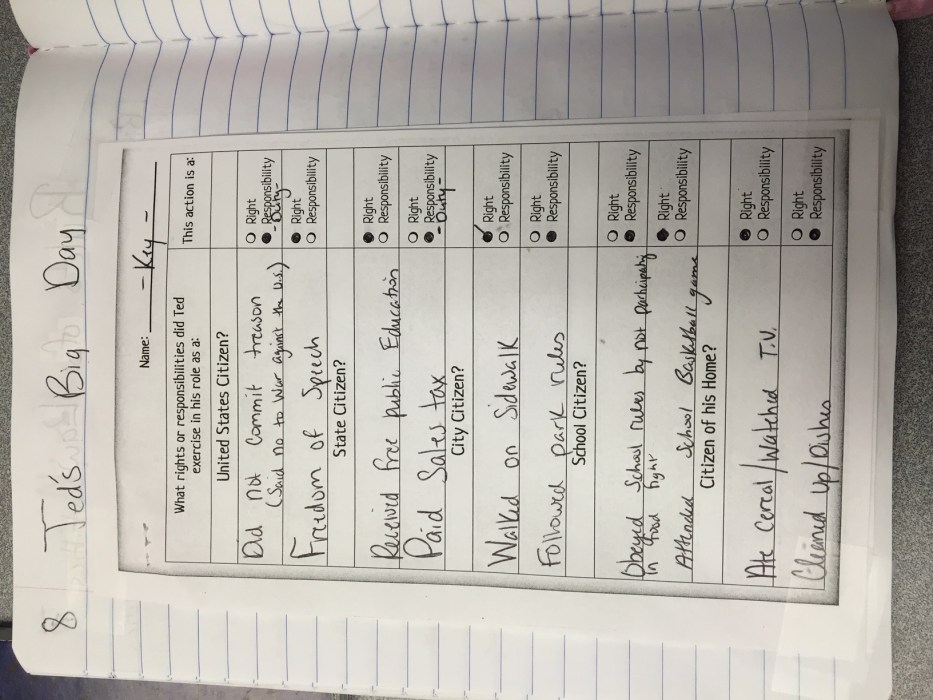Hey king get off our back answer key – Delving into the intriguing phrase “Hey King, Get Off Our Back,” this exploration delves into its historical roots, cultural significance, and potential impact on relationships and communication. By examining the intended meaning, possible interpretations, and alternative expressions, we gain a deeper understanding of how language shapes our interactions and the importance of mindful communication.
Hey King: Definition and Origin: Hey King Get Off Our Back Answer Key

The phrase “Hey King” is an informal expression often used as a greeting or term of address, particularly in African American Vernacular English (AAVE). It originated in the African American community in the United States, where it was used to show respect and acknowledgment among peers and acquaintances.
The term “King” in this context is not meant to imply royalty or superiority, but rather a sense of respect and camaraderie. It is similar to other terms of endearment used in AAVE, such as “brother,” “sister,” or “queen.”
Get Off Our Back: Interpretation and Response
The phrase “Get off our back” is typically used to express annoyance or frustration with someone who is perceived to be pestering or bothering them. It can be interpreted as a demand for space, privacy, or respect.
Depending on the context and tone of voice, the phrase can be perceived as rude or disrespectful. It is important to be mindful of how the phrase might be received by the person you are speaking to.
If someone says “Get off our back” to you, it is best to respond respectfully and calmly. You can try to understand their perspective and see if there is anything you can do to address their concerns. You can also try to rephrase your request or question in a more respectful way.
Impact on Relationships and Communication
Using the phrase “Hey King Get off our back” can have a negative impact on relationships and communication.
- It can damage trust and respect between individuals.
- It can make it difficult to have open and honest conversations.
- It can create a hostile or confrontational environment.
If you are concerned about the impact of using this phrase, it is best to avoid it. There are many other more respectful and effective ways to communicate your needs and concerns.
Alternative Expressions and Phrases, Hey king get off our back answer key
There are many alternative expressions and phrases that can be used to convey a similar message without being disrespectful or offensive.
- “Can you please give me some space?”
- “I need some time to myself right now.”
- “I’m not really in the mood to talk right now.”
- “Can we talk about this later?”
- “I appreciate your concern, but I’m not interested in discussing this further.”
When choosing an alternative expression or phrase, it is important to consider the context and tone of voice. You want to choose a phrase that is respectful and appropriate for the situation.
Cultural Sensitivity and Context
The phrase “Hey King Get off our back” may have different meanings and connotations in different cultures and contexts.
In some cultures, the phrase may be seen as a sign of respect, while in other cultures it may be seen as disrespectful. It is important to be aware of the cultural context before using this phrase.
If you are unsure about how the phrase will be received, it is best to avoid using it. There are many other more respectful and effective ways to communicate your needs and concerns.
Question & Answer Hub
What is the historical origin of the phrase “Hey King”?
The term “Hey King” has its roots in African-American Vernacular English (AAVE) and is often used as a term of respect or endearment.
How can the phrase “Get off our back” be interpreted?
The phrase “Get off our back” can be interpreted as a request for someone to stop bothering or pressuring the speaker.
Why is it important to consider cultural context when using the phrase “Hey King, Get Off Our Back”?
The meaning and interpretation of the phrase can vary across different cultures and contexts. It is important to be mindful of these differences to avoid misunderstandings or offense.

